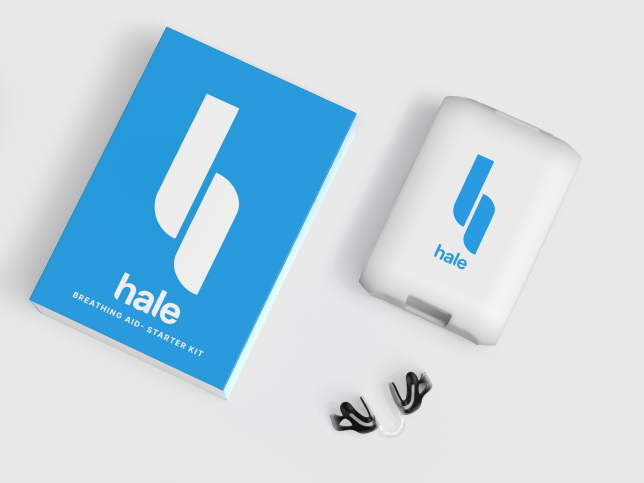
As we age, our immune system naturally weakens, making us more vulnerable to infections, colds, and respiratory issues—especially in the colder months. While we can’t stop the aging process, we can take proactive steps to support our immune health. From dietary changes and yoga to the use of nasal dilators and mouth tape, here’s how to stay healthy and resilient all winter long.
Aging impacts the immune system in several ways:
Slower Immune Response
The body produces fewer white blood cells, making it harder to fight off infections quickly. This means illnesses last longer and can become more severe.
Increased Inflammation & Chronic Conditions
Aging is often associated with inflammaging—a state of chronic low-grade inflammation. Conditions like diabetes, heart disease, and arthritis also weaken immune defenses.
Decline in Respiratory Function
The lungs and nasal passages become less efficient at clearing mucus and pathogens, increasing the risk of respiratory infections like colds, flu, and pneumonia.
Poor Sleep Quality
As we get older, sleep disturbances become more common, reducing the body’s ability to repair and produce immune-boosting cytokines.
Natural Ways to Boost Immunity During Cold Months
A strong immune system starts with healthy habits. Here are natural ways to support your defenses throughout winter:
Use a Nasal Dilator for Better Breathing
A nasal dilator keeps nasal passages open, allowing for better airflow and improved oxygen intake. This is especially helpful during winter when dry air and congestion can make breathing difficult.
Benefits include:
• Reduced nasal congestion, helping to prevent sinus infections.
• Better sleep quality, as it prevents snoring and sleep interruptions.
• Stronger respiratory health, reducing strain on the lungs.
Using a nasal dilator at night or during physical activity can help keep your airways clear and support immune function.
Try Mouth Taping for Improved Sleep & Nasal Breathing
Breathing through the nose is essential for immune health because it filters and humidifies the air before it reaches the lungs. However, many people unknowingly breathe through their mouths at night, which can:
• Dry out the throat and increase the risk of infections.
• Disrupt sleep quality, leading to fatigue and a weakened immune system.
Using mouth tape while sleeping encourages nasal breathing, improving oxygen absorption and promoting restful sleep—both of which are crucial for a strong immune response.
Practice Yoga for Immune Support
Yoga is a powerful tool for reducing stress, improving circulation, and enhancing respiratory function. Certain yoga poses help stimulate the lymphatic system, which is responsible for removing toxins from the body. Try:
• Downward Dog & Forward Fold to improve circulation.
• Cat-Cow Pose to support lung function.
• Legs-Up-the-Wall Pose to reduce stress and promote relaxation.
Deep breathing exercises in yoga also help strengthen the lungs and improve oxygen flow, making it an excellent practice for winter wellness.
Boost Vitamin D Levels
Winter months mean less sunlight, which can lead to low vitamin D levels—a key nutrient for immune function. To prevent deficiency:
• Spend time outside whenever possible.
• Eat vitamin D-rich foods like fatty fish, eggs, and fortified dairy.
• Consider a vitamin D supplement if needed.
Stay Hydrated
Cold weather can cause dehydration, weakening the immune system. Hydration helps keep mucous membranes moist, allowing them to trap and eliminate germs more effectively. Tips:
• Drink warm teas, bone broth, and water throughout the day.
• Use a humidifier to prevent dry indoor air.
Prioritize Sleep
Quality sleep is essential for immune health. To improve sleep:
• Maintain a consistent bedtime.
• Use a nasal dilator and mouth tape to prevent snoring and dry mouth.
• Keep your bedroom cool and dark.
Eat Immune-Boosting Foods
A nutrient-rich diet supports immune function. Focus on:
• Antioxidant-rich foods like berries, leafy greens, and nuts.
• Zinc sources such as pumpkin seeds, lentils, and lean meats.
• Probiotic foods like yogurt, kimchi, and sauerkraut to promote gut health.
Exercise Without Overdoing It
Moderate exercise strengthens immunity, but overtraining can have the opposite effect. Best winter workouts include:
• Walking outdoors for fresh air and vitamin D.
• Yoga for circulation and stress relief.
• Light strength training to maintain muscle and metabolic health.
Reduce Stress
Chronic stress weakens the immune system by increasing cortisol levels. Try:
• Yoga & meditation to calm the nervous system.
• Journaling, reading, or engaging in hobbies.
• Spending time with loved ones to boost emotional well-being.
Final Thoughts
While aging naturally weakens immunity, simple lifestyle changes can help you stay strong and resilient throughout the winter. Using a nasal dilator, mouth tape, and yoga can significantly improve breathing, sleep, and overall immune health. Combine these with a nutrient-rich diet, hydration, and stress management to keep your body in top shape all season long.
Ready to support your immunity naturally? Try incorporating nasal breathing tools and gentle movement into your daily routine for better health this winter!
